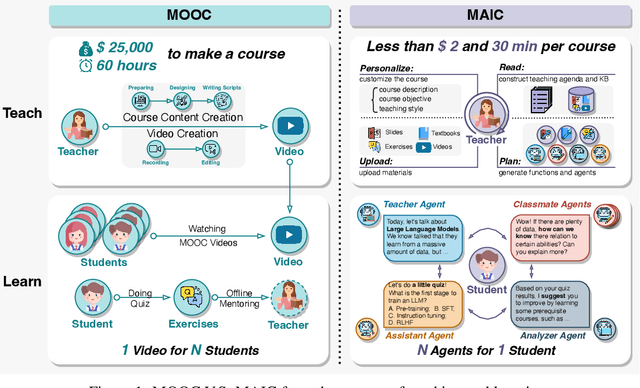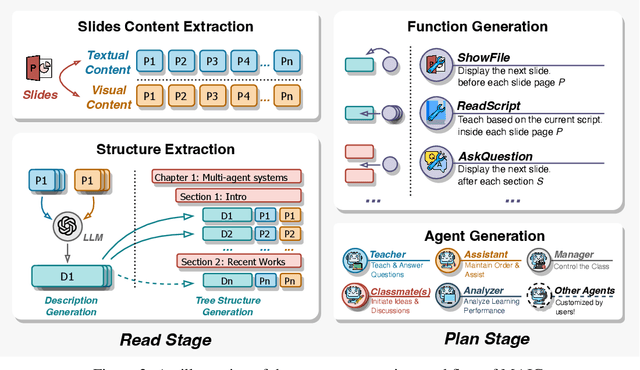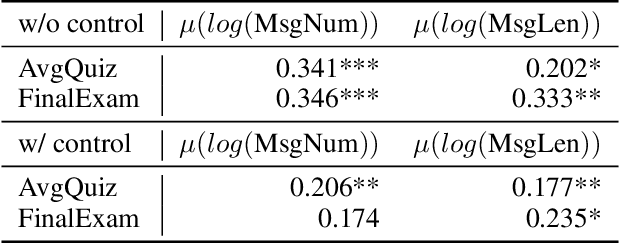Manli Li
From MOOC to MAIC: Reshaping Online Teaching and Learning through LLM-driven Agents
Sep 05, 2024



Abstract:Since the first instances of online education, where courses were uploaded to accessible and shared online platforms, this form of scaling the dissemination of human knowledge to reach a broader audience has sparked extensive discussion and widespread adoption. Recognizing that personalized learning still holds significant potential for improvement, new AI technologies have been continuously integrated into this learning format, resulting in a variety of educational AI applications such as educational recommendation and intelligent tutoring. The emergence of intelligence in large language models (LLMs) has allowed for these educational enhancements to be built upon a unified foundational model, enabling deeper integration. In this context, we propose MAIC (Massive AI-empowered Course), a new form of online education that leverages LLM-driven multi-agent systems to construct an AI-augmented classroom, balancing scalability with adaptivity. Beyond exploring the conceptual framework and technical innovations, we conduct preliminary experiments at Tsinghua University, one of China's leading universities. Drawing from over 100,000 learning records of more than 500 students, we obtain a series of valuable observations and initial analyses. This project will continue to evolve, ultimately aiming to establish a comprehensive open platform that supports and unifies research, technology, and applications in exploring the possibilities of online education in the era of large model AI. We envision this platform as a collaborative hub, bringing together educators, researchers, and innovators to collectively explore the future of AI-driven online education.
MoocRadar: A Fine-grained and Multi-aspect Knowledge Repository for Improving Cognitive Student Modeling in MOOCs
Apr 05, 2023Abstract:Student modeling, the task of inferring a student's learning characteristics through their interactions with coursework, is a fundamental issue in intelligent education. Although the recent attempts from knowledge tracing and cognitive diagnosis propose several promising directions for improving the usability and effectiveness of current models, the existing public datasets are still insufficient to meet the need for these potential solutions due to their ignorance of complete exercising contexts, fine-grained concepts, and cognitive labels. In this paper, we present MoocRadar, a fine-grained, multi-aspect knowledge repository consisting of 2,513 exercise questions, 5,600 knowledge concepts, and over 12 million behavioral records. Specifically, we propose a framework to guarantee a high-quality and comprehensive annotation of fine-grained concepts and cognitive labels. The statistical and experimental results indicate that our dataset provides the basis for the future improvements of existing methods. Moreover, to support the convenient usage for researchers, we release a set of tools for data querying, model adaption, and even the extension of our repository, which are now available at https://github.com/THU-KEG/MOOC-Radar.
 Add to Chrome
Add to Chrome Add to Firefox
Add to Firefox Add to Edge
Add to Edge